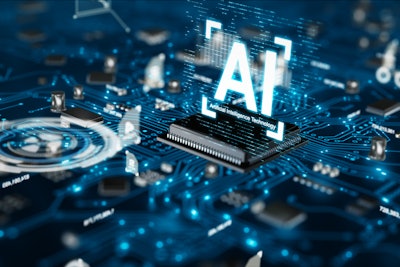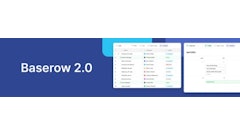
Organizations often face the challenge of critical knowledge when employees leave or retire. Loss of this “institutional knowledge” combined with growing complex operations as a company scales can lead to fragmentation and siloes, inefficiencies, repeated mistakes, and a decline in overall performance.
Supply chain management is particularly susceptible to these issues due to the widespread challenge of scattered documents across multiple systems, manual processes, and paper trails. There seems to be a different vendor, app, or system for almost everything. In a relationship-based industry like logistics, it’s also equally as important to know specific client priorities, individual personality quirks, and general background on the account which can easily be lost when an employee leaves.
How AI can capture institutional knowledge:
Centralized knowledge databases. An AI-backed centralized knowledge database spreads institutional know-how across the organization, supporting employees at all levels instead of centralizing expertise with a few. Instead of functioning as a static archive, it acts as a living, intelligent system that grows alongside the organization. By using machine learning (ML) and natural language processing (NLP), the platform continuously absorbs insights from documents, data streams, and day-to-day interactions.
For logistics providers, this means hard-won expertise, traditionally locked in spreadsheets, siloed systems, or the minds of seasoned employees, can be captured and made universally accessible. Over time, the knowledge base doesn’t just store information; it refines and contextualizes it, enabling teams across the supply chain to tap into collective intelligence. The outcome is more resilient operations, faster responses to disruptions, and a future-proof way of ensuring that critical know-how is never lost, even as the workforce changes.
Intelligent search and discovery. Intelligent search and discovery transforms how logistics organizations access and apply institutional knowledge. Instead of sifting through fragmented systems, paper trails, or siloed databases, employees can use AI-powered search tools that understand context and intent. Leveraging NLP, these systems go beyond simple keyword matching to surface the most relevant insights, whether it’s a historical shipping delay, a customer-specific routing preference, or best practices for handling exceptions.
For supply chain providers, this means expertise once buried in emails, reports, or the memory of veteran staff can be instantly retrieved and acted upon. By making institutional knowledge discoverable in real time, intelligent search and discovery empowers teams at every level to make faster, more informed decisions, ultimately reducing friction, improving service reliability, and strengthening operational resilience.
Conversational AI and chatbots. Conversational AI and chatbots are redefining how institutional knowledge is accessed and applied in logistics. Rather than navigating complex systems or relying on a handful of experts, employees can interact with AI-powered assistants that provide instant, context-aware answers. Using natural language understanding, these tools translate the complexities of supply chain data into clear, actionable guidance, whether it’s clarifying compliance requirements, troubleshooting a delayed shipment, or pulling up a customer’s historical preferences.
For logistics providers, this creates a more inclusive and efficient knowledge environment where frontline staff, drivers, and customer service teams can tap into organizational expertise as easily as starting a conversation. The result is faster problem resolution, reduced dependence on institutional memory, and a more agile workforce equipped to adapt to disruption in real time.
Broader implications for the industry
The ability to capture and operationalize institutional knowledge has become a defining factor for supply chain resilience. As experienced employees retire or move on, organizations risk losing years of tacit expertise, from carrier relationship nuances to the “unwritten rules” of managing exceptions based on specific client preferences. Without systems to preserve that knowledge, companies are forced to relearn the same lessons each time an account transitions at a high operational cost and a frustrating result for the client.
Turnover is accelerating across logistics and transportation and there isn’t enough talent coming in to replace the losses. In 2025 alone, chief supply chain officers at various big box organizations announced their upcoming retirements. Without AI-enabled tools to capture institutional knowledge, that loss creates significant knowledge gaps. Intelligent systems ensure that the insights of seasoned professionals don’t walk out the door, but instead become part of a shared, living resource for future teams. McKinsey notes that organizations embedding AI into logistics realize about a 15% reduction in costs, a 35% enhancement in inventory accuracy, and a 65% improvement in service levels.
High turnover has long been a challenge in logistics, from warehouse workers to dispatch coordinators. With AI systems that embed institutional knowledge, new hires can access decades of expertise on day one. Gartner predicts that by 2028, 40% of employees will be trained and coached by AI when entering new roles, up from less than 5% today.
As adoption grows, institutional knowledge captured by AI won’t just benefit individual firms, it will reshape competitive dynamics. Companies that digitize their expertise will adapt faster to market volatility, while those that rely on institutional memory risk repeating mistakes. The global AI in supply chain market is projected to hit $22.4 billion by 2027 (CAGR 45%), underscoring how knowledge systems are becoming a core capability, not an optional tool.
The future of AI in supply chains
The broader implication is clear, AI is not just about automating tasks or crunching data. For supply chains, its greatest value may be in safeguarding the hard-won expertise that defines operational excellence. By institutionalizing knowledge at scale, logistics providers can ensure continuity, resilience, and adaptability long after individual experts move on.




















